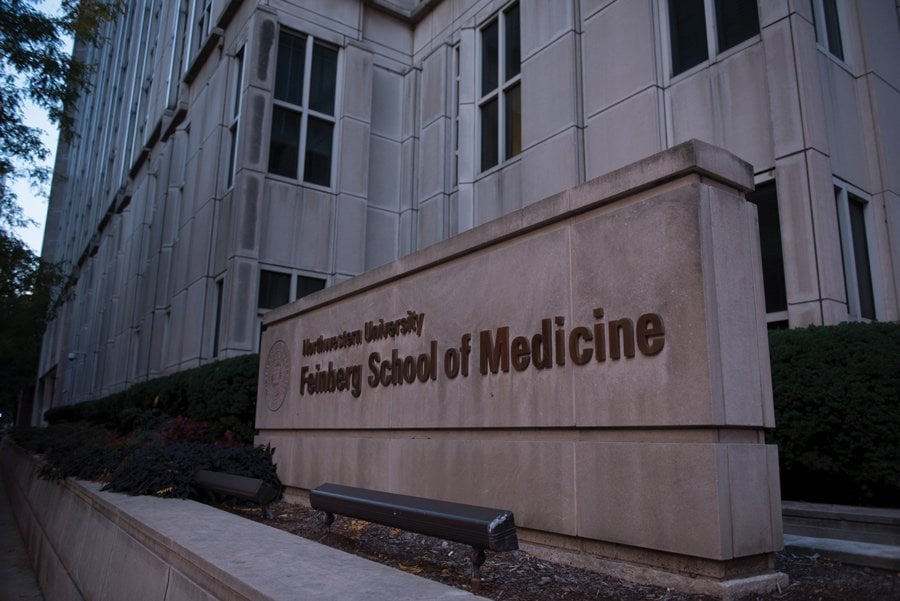Northwestern Medicine researchers develop protein to incapacitate COVID-causing virus
Daily file photo by Katie Pach
While the study is preliminary, it might be the first proof that the protein is effective in living organisms under appropriate conditions.
March 30, 2021
Northwestern Medicine scientists developed a decoy protein that incapacitates SARS-CoV-2, the virus that causes COVID-19, according to a University release.
The protein, a variant of an enzyme called ACE2 found in organs like the lung, heart and kidneys, works by interfering with the spike proteins on coronavirus particles called virions, fooling them into binding to the protein in the cell membrane. This decoy action renders the virus ineffective.
“We have converted a lethal disease to a milder lung disease that is fully reversible,” Feinberg Prof. Daniel Batlle, lead investigator of the project, said in the release. “The protein could be complementary to other potential treatments or effective alone,”
When tested on genetically modified mice, the decoy protein reduced COVID-19 symptoms and lung damage significantly. According to the release, natural mouse ACE2 enzymes cannot bind to the coronavirus, meaning genetic modification must include human ACE2 enzymes.
While the findings are part of a preliminary study, it might be the first proof that the protein is effective in living organisms under appropriate conditions and may remain potent for days.
Before the lab can apply for approval of future studies involving patients who have contracted the virus, researchers need to plan safety studies as the next step.
“While widespread vaccination is the best way to combat the COVID-19 pandemic, there will always be a need for treatment of people who were not vaccinated or for whom the vaccine was not fully effective,” Batlle said in the release.
Email: [email protected]
Twitter: @YunkyoMoonK
Related Stories:
— NU students now eligible for compensated Moderna vaccine trial
— Northwestern announces expectations for Fall and Spring Quarter
— Feinberg researchers find COVID-19 strain from Brazil in Chicago



